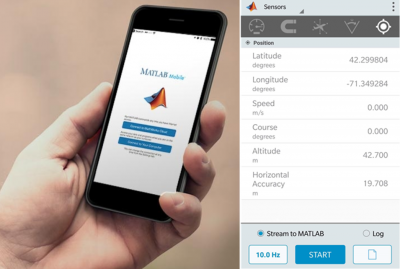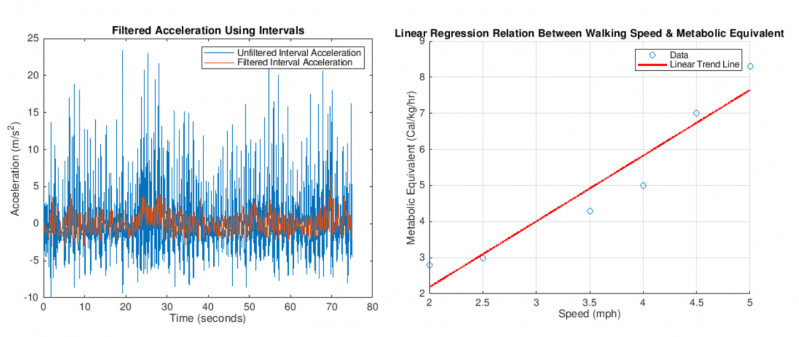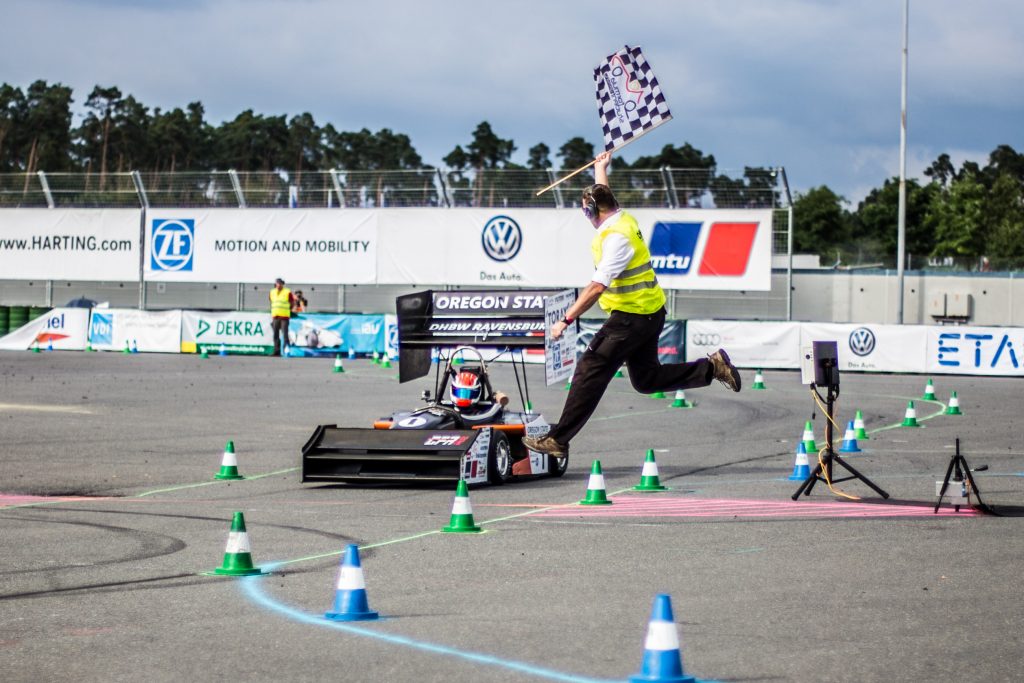高中生为Matlab Step Challenge创建健身跟踪器
本周我们的客人博主何塞·艾登那诺is back to talk to us about thematlab词干挑战最近结束了。在这一挑战中,来自富兰克林和Creatham高中的学生使用Matlab创建了健身跟踪器。
matlab词干挑战
As part of the student competitions team at MathWorks, we are involved with many different programming challenges. Thematlab词干挑战is particularly special because of the final problem presented to high school students. This competition was held in partnership withI2 Learning作为的一部分大众茎周程序。挑战的参赛者是任务的Matlab在线andMatlab Mobileto create a fitness tracker algorithm and implement it on data acquired by themselves. The algorithm was meant to process raw activity data coming from motion sensors and give the user useful information such as that presented in commercial devices like steps taken, distance traveled, calories burnt, etc.
要开始使用matlab语言,他们通过完成我们的第一阶段学习编码series of online tutorials. This interactive online tutorial got the participants familiar with MATLAB syntax, which equipped them to process motion data from different sensors to extract meaningful health metrics. On the second stage of the challenge the students’ creativity became crucial. Given a set of motion readings, which health metrics were important? Which sensors should be used? Are there any readily available algorithms that can be explored? The basic architecture would look something like the image below.
Given minimal guidance we left all the important decisions to the students. This way participants could be as creative as possible developing their algorithms. All that remained for the students to start coding their fitness tracking models was easily acquiring the movement data from a person.
如何录制移动数据?
由于此挑战的参与者可能无法访问数据收集硬件,因此这个问题很重要。然而,我们可以指望大多数参与者可以访问的实验平台。在不实现它的情况下,大多数人已经携带完整的运动传感器,如GPS,加速度计和口袋里的陀螺仪;他们的手机!Matlab Mobilesupports logging the sensors from both Android and Apple devices.
With some simple instructions the participants could access data from accelerometers, gyroscopes, GPS, and some other sensors that were already present in their phones using theMatlab MobileApp。Most importantly all this information could be logged at various sampling rates and directly imported into MATLAB.
The Winners – Franklin High School “Team 1”
参与者有几个月的研究和实施算法来计算各种健康指标。挑战的获胜者是一支球队富兰克林高中in Massachusetts. They implemented the full suite of sensor readings available to calculate steps, distance traveled, calories burned, and flights of stairs climbed. These metrics are on par with commercial fitness trackers! We were absolutely impressed. In the image below, you can see the layout of their implementation which explains how the information from the user and sensors is merged to come up with the actionable and personalized health statistics.
然后,学生通过编码完整项目的不同组成部分来工作。该团队通过多种过滤算法进行了实验,可以在处理前平滑他们的数据,并且必须编程不同的技术,如将步行速度与能量相关,以导出像燃烧的卡路里和行驶的卡路里一样的有用洞察。正如您所看到的,他们记录了所有这些过程,并使用几个Matlab图来分析数据,如过滤的加速和步行速度VS代谢等效回归。这些地块帮助他们区分了从没有的那些效果工作的方法。
通过比较燃烧到普通类型的食物的热量的卡路里数量,这支球队也在以上。这意味着您可以立即知道您的锻炼会话是否足以解释您的最后一餐。无论是根据获奖者的“一个杏”,“汉堡王Ticple Whoppper”,或“不仅仅是一块巨大的意大利面!”
The finalists for the MATLAB STEM Challenge were invited to visit the MathWorks headquarters in Natick Massachusetts. The teams spent the day presenting their projects, receiving awards, learning about careers in technology and interacting with MathWorks engineers. If you are interested in developing similar applications, make sure to check out our support forIOSandAndroid设备。我们期待着seeing what you can develop using these tools!














 Cleve’s Corner: Cleve Moler on Mathematics and Computing
Cleve’s Corner: Cleve Moler on Mathematics and Computing Loren在Matlab的艺术上
Loren在Matlab的艺术上 史蒂夫在图像处理与matlab
史蒂夫在图像处理与matlab Guy on Simulink
Guy on Simulink Deep Learning
Deep Learning Developer Zone
Developer Zone Stuart的Matlab视频
Stuart的Matlab视频 在头条新闻后面
在头条新闻后面 本周的文件交换选择
本周的文件交换选择 Hans on IoT
Hans on IoT Student Lounge
Student Lounge Startups, Accelerators, & Entrepreneurs
Startups, Accelerators, & Entrepreneurs 马铃薯草社区
马铃薯草社区 马铃薯草ユーザーコミュニティー
马铃薯草ユーザーコミュニティー














Comments
要发表评论,请点击here要登录您的MathWorks帐户或创建新的。